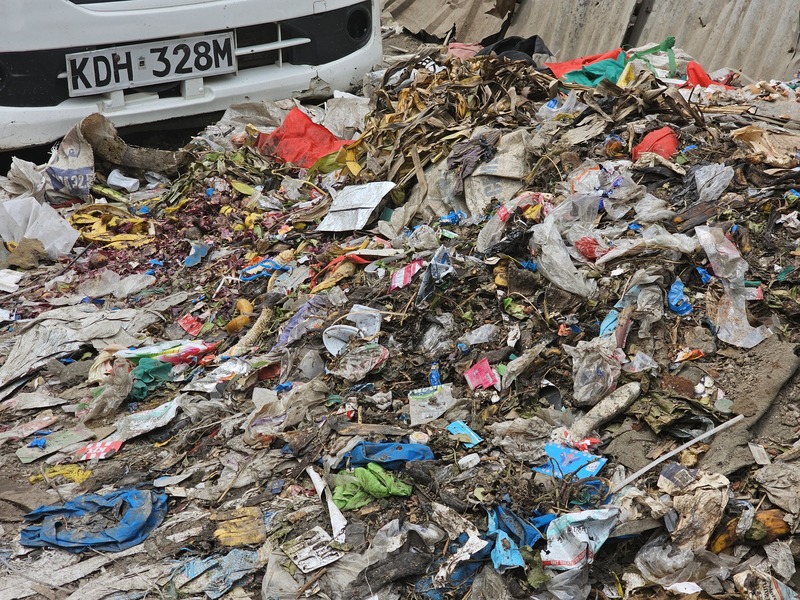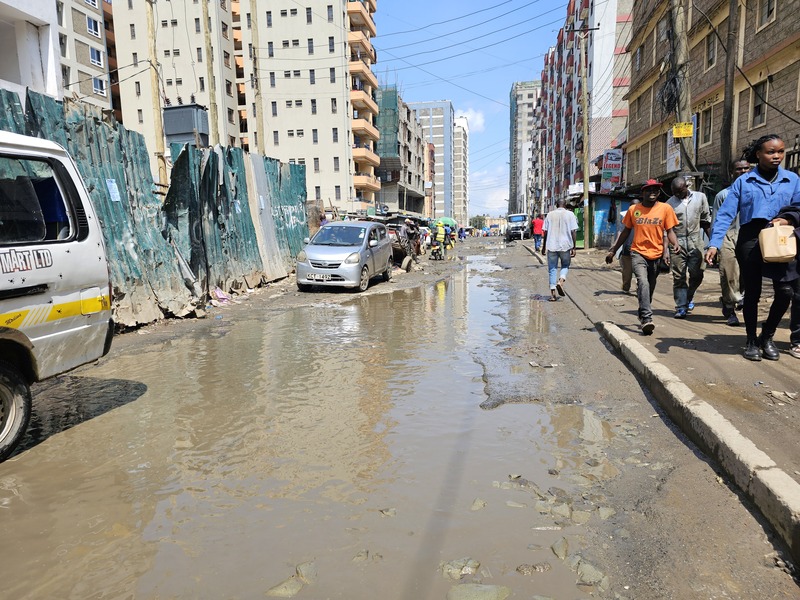Deteriorating Eastleigh's Keroe Street faces new threat of illegal dumping site on roadside

The location of the dumpsite is next to Nomad Palace Hotel, a spot that has recently started to accumulate waste.
Residents of Keroe Street in Eastleigh have expressed growing concern over the creation of an illegal dumping site along the already deteriorated road.
Although the pile is still relatively small, residents fear it could quickly become a much larger issue if more people start discarding their trash there, mistaking it for an official dump site.
More To Read
- Lack of streetlights on Eastleigh's Keroe Street raises security concerns
- Counties blamed for garbage crisis as CS Barasa cites rampant defiance
- Construction of Keroe Street begins, sparking hope for safer, accessible roads in California, Eastleigh
- How Eastleigh residents stopped illegal garbage dumping on parts of General Wariungi Street
- Eastleigh street turns into garbage dump, frustrating road users, businesses
- Waste, industrial effluent continue to choke Nairobi River despite clean-up efforts
Abdiaziz Harun, a taxi driver, voiced his concerns about the situation. He explained that while he does not know who initially dumped the garbage, the current state of the road could worsen if the issue is not addressed.
"This road is already in a bad state, and now with the garbage, it might make it completely impassable," Abdiaziz said.
The dilapidated section of Keroe Street, which serves as a waiting area for taxi drivers like Abdiaziz, is also used by matatus operating on the Eastleigh-CBD route. These drivers have informally turned part of the road into a parking lot, further congesting the area.
Yasmin Hassan, a resident who regularly uses Keroe Street, echoed Abdiaziz's concerns. She noted that navigating the road has become more challenging, especially when vehicles are present on both sides. The road, which is already narrow due to the presence of garbage, leaves little room for pedestrians and motorists to pass.9
"When two vehicles use this road at the same time, we have to wait on the side to avoid being hit. The garbage has squeezed the road, and it's difficult for anyone to pass," Yasmin explained.
She went on to point out that some hawkers selling goods on the nearby General Waruingi Street, might be responsible for dumping their waste in the area after closing their stalls for the day.
"It is those hawkers who dump their garbage here. You can see banana peels and other waste from their products," Yasmin said.
 How the dilapidated road looks like when it rains. (Abdirahman Khalif)
How the dilapidated road looks like when it rains. (Abdirahman Khalif)
However, Magdalene Mutuku, one of the hawkers operating on General Waruingi Street, denied the accusations. She claimed that the garbage on Keroe Street might be part of a collection process conducted by members of the Green Army.
"We don't dump garbage here. The green army seems to use this spot as a collection point. That's what I think is happening," said Magdalene.
The problems on Keroe Street extend beyond the garbage dumping issue. The road has been severely eroded over time due to persistent flooding. Once a bustling route, it has now deteriorated significantly, with many large potholes making it difficult for motorists and pedestrians to navigate.
When it rains, the potholes fill up with water, creating a dangerous situation for anyone attempting to use the road. With the size of the potholes, the water remains trapped in them for weeks, turning stagnant and posing a potential health hazard for the community.
The stagnant water emits a foul odour and becomes a breeding ground for mosquitoes, further complicating the health and safety of those living and working in the area.
Keroe Street is an essential artery in the California ward, connecting Marimbi Street to General Waruingi Street, right at the junction with Nomad Palace Hotel. The road is home to various businesses, including hospitals, food wholesalers, shops, restaurants, and beauty parlours.
Additionally, several residential buildings along the street house thousands of people. For many schoolchildren attending nearby madrasas and local schools, Keroe Street is a key route they rely on daily
Top Stories Today














































